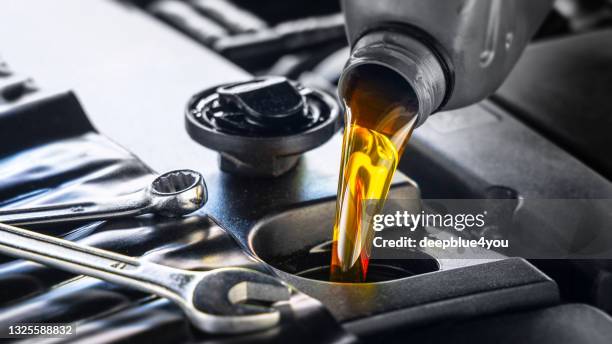Maximize Your Cars and truck'S Performance With Normal Oil Modifications
Maintaining your car's performance is a multifaceted venture, with regular oil adjustments standing out as a vital element. Fresh engine oil plays a crucial role in ensuring ideal lubrication, decreasing rubbing, and preventing wear on essential components. Lots of vehicle drivers overlook the signs that show a requirement for an oil modification, possibly endangering their lorry's durability.
Significance of Normal Oil Modifications
While lots of auto proprietors might overlook the importance of regular oil adjustments, ignoring this vital upkeep task can lead to serious repercussions for engine performance and longevity. Engine oil plays an important duty in lubing relocating components, minimizing friction, and stopping overheating. Over time, oil degrades due to direct exposure to warmth and contaminants, which diminishes its performance.
Falling short to transform the oil routinely can lead to the buildup of sludge and particles, which can obstruct vital engine components and result in raised wear. This not just jeopardizes engine efficiency yet can also cause expensive repair services or also complete engine failure. Additionally, old oil sheds its ability to neutralize acids generated throughout burning, which can bring about corrosion and more damage.
In addition, lots of lorry suppliers recommend certain oil adjustment intervals, typically based on mileage or time. In recap, normal oil changes are not just a recommendation; they are an essential part of responsible vehicle maintenance that safeguards the engine and improves general performance.
Advantages of Fresh Oil
Altering to fresh oil offers various advantages that directly improve engine efficiency and efficiency. Among the primary advantages of fresh oil is its superior lubricating homes. New oil minimizes friction in between engine components, which not just reduces wear yet also adds to smoother procedure. This results in improved gas efficiency, as the engine does not need to function as tough to overcome resistance.
Furthermore, fresh oil successfully cleans up the engine by putting on hold pollutants and avoiding sludge buildup. Over time, oil ends up being polluted with dirt, steel fragments, and combustion by-products. On a regular basis changing oil makes certain that these dangerous compounds are removed, advertising a cleaner and healthier engine setting.
Furthermore, fresh oil aids in optimum temperature guideline. It dissipates warmth better, protecting against getting too hot and potential damages to engine parts. This is specifically crucial during peak efficiency circumstances, where warm accumulation can hinder engine capability.
Indicators Your Oil Requirements Changing
Engine oil is the lifeblood of your lorry, and identifying when it needs altering is vital for preserving optimal performance - Oil Change Lockhart. A number of signs suggest that it's time for an oil adjustment, and remaining vigilant can stop engine damages and costly repair work
First, inspect the color and uniformity of the oil. Fresh oil is typically brownish-yellow and smooth, while old oil may appear dark and sandy, suggesting contamination and decreased efficiency. An adjustment in viscosity can also signify that the oil has actually broken down and is no more sufficiently lubricating engine parts.

One more warning indication is over at this website the oil modification light on your control panel. This alert acts as a suggestion that the oil has reached its lifespan or that there is a hidden concern needing focus. In addition, unusual engine noises, such as knocking or ticking, might recommend inadequate lubrication because of degraded oil.
Finally, if you observe oil areas or pools under your automobile, it might indicate a leak that necessitates instant evaluation and possible oil modification. Listening to these indicators will ensure your engine operates efficiently and effectively.
Selecting the Right Oil
Choosing the appropriate oil for your lorry is important for ensuring optimum performance and durability. Engine oils are available in different types and thickness, each created to meet click here to find out more details demands. The very first consideration needs to be the supplier's suggestions, which can commonly be discovered in the owner's manual. This advice will certainly route you toward the proper thickness grade, such as 5W-30 or 10W-40, which indicates the oil's thickness at different temperature levels.
Next, consider the sort of oil: standard, synthetic, or a mix. Traditional oil is derived from unrefined oil and appropriates for older vehicles, while artificial oil offers premium protection and efficiency for modern engines, particularly under extreme problems. Artificial blends integrate the advantages of both and are usually an economical choice.
Additionally, search for oils that meet market standards, such as API over at this website (American Oil Institute) or ACEA (Organization des Constructeurs Européens d'Automobiles) accreditations. These indications ensure that the oil has been examined for quality and performance. Inevitably, selecting the right oil not just enhances engine efficiency yet additionally adds to the total wellness of your vehicle, paving the way for smoother driving experiences.
Oil Modification Frequency Recommendations

Variables influencing oil modification regularity include driving problems, such as stop-and-go traffic, extreme temperatures, and lugging heavy loads. Under extreme conditions, it could be prudent to transform the oil a lot more frequently to avoid engine wear. Furthermore, some modern lorries come geared up with oil life surveillance systems that supply personalized referrals based on driving behaviors, which can even more maximize the oil change timetable.
It's important to consult your proprietor's manual for details recommendations customized to your vehicle. Following these standards not only maintains engine health however additionally enhances gas efficiency and decreases exhausts. To conclude, routine oil adjustments, timed appropriately based upon numerous elements, are an essential facet of car upkeep that can dramatically impact performance and long life.
Conclusion
